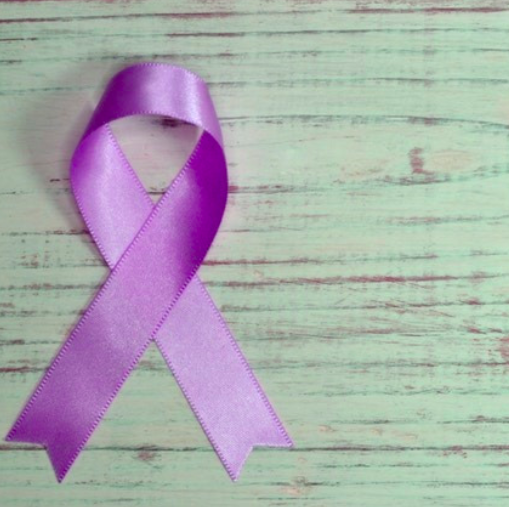September marks Recovery Month, an international event which celebrates the progress people have made in recovery from mental health conditions and substance abuse, in the same non-judgmental way we would celebrate someone recovering from any other sort of illness. Every year Recovery Month celebrates a different theme; this year it is “Join the Voices for Recovery: Celebrating Connections.” We will join together to appreciate the workers who help facilitate this, and the people in recovery will tell their stories to inspire others. Together, we can counter the stigma which is unfairly put upon those who abuse substances.
Recovery month is an important month to me personally, as well as professionally, as I am in long-term recovery and haven’t had a drink or a drug since February 24, 1982. I battled with my own addiction during college, and after 4 months of treatment I realized my ideal vocation was to work in the field of mental health and addictions and went back to finish my studies in psychology.
It is estimated that 22.35 million adults in the United States have resolved a drug or alcohol problem. This is a staggering 9.1% of the total population[1], and it is extremely inspiring because it reflects the true scope of people who have turned their lives around. The need for recovery to be in the spotlight has never been more important than now; in 2018 67,367 overdose deaths were recorded. This has increased dramatically in the past ten years due to the introduction of fentanyl, a super-potent opioid painkiller.
Recovery offers freedom. In order to be free from something, it must once have held you captive, which is what any Substance Abuse Disorder or mental health condition does to people. It hijacks the brain’s neuropathways and impairs the user’s ability to access their frontal cortex, making it impossible to control cravings or make healthy decisions[2]. It holds their lives, and the peace of mind of their families and loved ones, for ransom. It also often takes place in the shadows because many people do not speak out for fear of being shamed.
Too often, people with a mental health condition or Substance Abuse Disorder are left untreated, with their stories ending in incarceration, hospitalization, or death. This is unacceptable in a modern age where science has shown that addiction is a disease[3]. It would be unthinkable to allow anyone with any other disease to suffer untreated, so why is addiction treated any differently?
Recovery means a chance at a fresh start. It means that people who felt that they existed in the fringes of society, suffering from a disease in secret, get a chance to re-invent themselves and enjoy a new beginning. It means that they get to find a community of like-minded people with whom to share their experiences and relate to their problems. It means parents reconnecting with their children and entire support systems finding a new lease on life.
Recovery can only begin with widespread education. People must understand that those who abuse substances are not at fault or morally corrupted; they are suffering from a disease which is fortunately treatable. Standing up and sharing your story of recovery means that the public will get a chance to see that addiction is something that can affect anyone and something from which everyone can recover. Recovery Month also gives professionals in drug and mental health treatment the opportunity to share new therapeutic techniques and skills with each other, which is vital for our common goal.
As previously mentioned, Substance Abuse Disorder is a disease which unfairly carries stigma like no other. Sufferers and their families frequently do not want to seek out help, as they are afraid of being judged by others. This silence can equate to death, as it means that many people do not receive the treatment that they need. However, there is no need to suffer in silence.
Throughout my time working as a professional within the mental health and substance abuse fields, I have worked with over 3000 families and have seen thousands of people who have recovered; I have seen the glint return to people’s eyes, the weight lift from families’ backs, and people return to being happy and productive members of society. I have also sadly worked with families whose loved ones succumbed to the disease. I personally believe that one death from this is too many and that we must work together to promote recovery and erase stigma.
There are similar events taking place all over the United States this month, many of them online. You can show your support for these events by wearing purple, and Twitter has pledged a purple ribbon for all of those using the hashtags you can find here.
This is where I believe the strength of Recovery Month lies. The more people we see standing up and sharing their stories of hope and transformation, the more visible and destigmatized recovery becomes. Although recovery teaches us to be humble, it remains important for us to remember that our stories may inspire someone else to change their life
References
[1] Kelly, John F. et al. “Prevalence And Pathways Of Recovery From Drug And Alcohol Problems In The United States Population: Implications For Practice, Research, And Policy”. Drug And Alcohol Dependence, vol 181, 2017, pp. 162-169. Elsevier BV, doi:10.1016/j.drugalcdep.2017.09.028. Accessed 4 Sept 2020.
[2] Schoenbaum, Geoffrey et al. “Orbitofrontal Cortex, Decision-Making And Drug Addiction”. Trends In Neurosciences, vol 29, no. 2, 2006, pp. 116-124. Elsevier BV, doi:10.1016/j.tins.2005.12.006. Accessed 24 Aug 2020.
[3] Volkow, N., Li, T. The neuroscience of addiction. Nat Neuroscience


